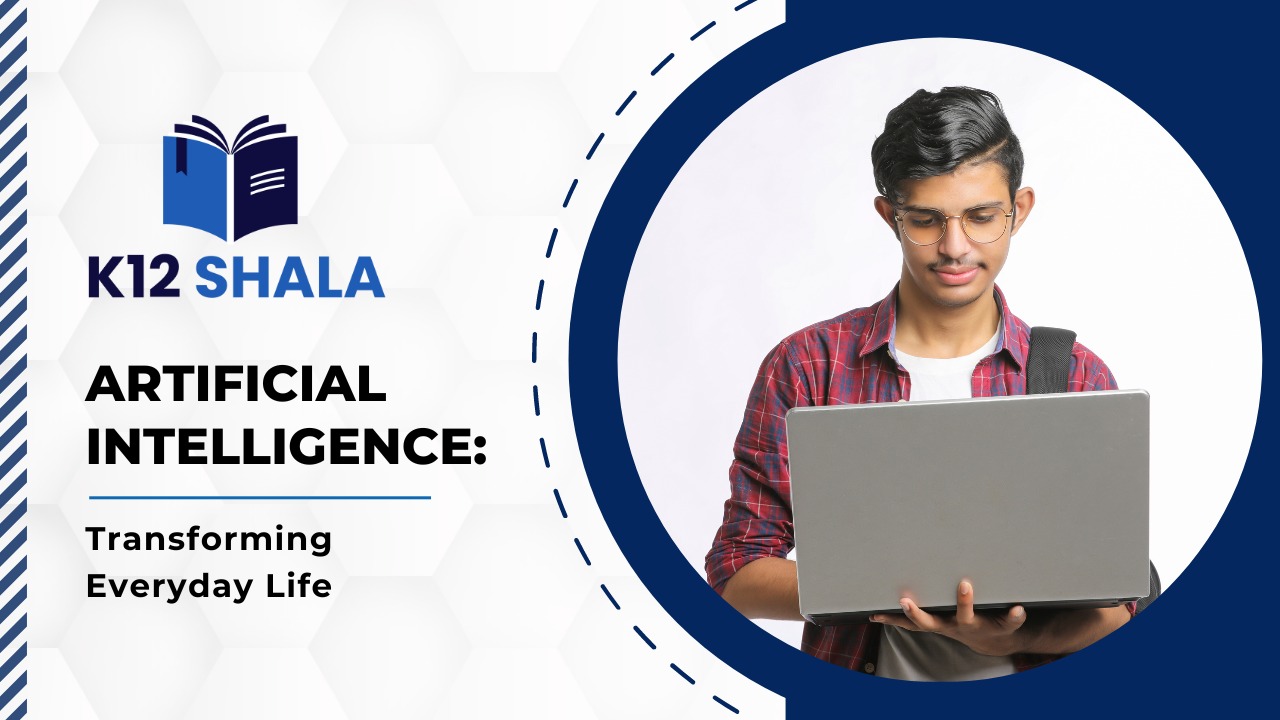Introduction to Artificial Intelligence
Imagine a world where your alarm clock not only wakes you up but also reads your mood and adjusts the lighting in your room accordingly. Picture walking into a grocery store where shelves automatically restock themselves, ensuring that everything you need is readily available. Envision driving down the road with a car that not only navigates for you but also predicts potential hazards before they even occur.
Welcome to the era of Artificial Intelligence (AI), where science fiction is becoming an everyday reality. AI has revolutionized various aspects of our lives, from healthcare to entertainment, transportation to personal assistance. In this blog post, we will explore how AI is transforming our daily routines and shaping the future of technology as we know it.
So buckle up and get ready for a thrilling journey through the realm of Artificial Intelligence!
How Artificial Intelligence is Transforming Everyday Life
Artificial Intelligence (AI) has become an integral part of our everyday lives, transforming the way we live, work, and interact with the world around us. From voice assistants like Siri and Alexa to smart home devices, AI is revolutionizing how we perform daily tasks.
One area where AI has made a significant impact is in healthcare. With its ability to analyze vast amounts of data quickly and accurately, AI enables doctors to diagnose diseases more effectively and develop personalized treatment plans for patients. It also plays a crucial role in drug discovery by helping researchers identify potential new medications faster than ever before.
In the realm of transportation, AI-powered technologies are driving innovations such as self-driving cars. These vehicles can navigate through traffic using advanced algorithms that interpret real-time data from sensors and cameras. Not only does this enhance road safety but it also paves the way for more efficient transportation systems.
AI has also found its place in customer service with chatbots handling routine inquiries on websites. These intelligent virtual agents provide instant responses to customer queries 24/7 without any human intervention. This not only improves efficiency but also enhances customer satisfaction by providing quick solutions.
Moreover, AI-driven recommendation systems have transformed the way we discover products or entertainment content online. By analyzing our preferences and behavior patterns, these algorithms suggest relevant items or content tailored specifically to our interests.
The applications of AI are boundless; it’s even contributing significantly to environmental sustainability efforts through energy optimization systems that reduce wastage in buildings or predict weather patterns for renewable energy generation.
As technology continues to evolve rapidly, there is no doubt that artificial intelligence will continue shaping our everyday lives in ways we may not yet imagine fully. Its potential seems limitless as we explore new possibilities across various industries – from education to finance – making life easier and more convenient for all.
Different Applications of Artificial Intelligence
Artificial Intelligence (AI) has rapidly become an integral part of our everyday lives, with its applications spanning across various sectors. One such sector is healthcare. AI is revolutionizing the way medical diagnoses are made and treatments are administered. Machine learning algorithms can analyze vast amounts of patient data to identify patterns and make accurate predictions, leading to improved disease prevention and personalized treatment plans.
Another area where AI is making a significant impact is in transportation. Self-driving cars powered by AI technology have the potential to transform mobility, making roads safer and reducing traffic congestion. These vehicles use sensors and machine learning algorithms to navigate their surroundings, adapting to changing road conditions in real-time.
AI also plays a crucial role in enhancing customer experiences through chatbots and virtual assistants. These intelligent systems can understand natural language queries and provide relevant information or assistance, improving customer service efficiency.
In the field of finance, AI algorithms can analyze market trends, predict stock prices, detect fraudulent transactions, and automate routine tasks like document processing. This not only saves time but also minimizes errors inherent in manual processes.
Additionally, AI-powered robots are being used for various purposes such as manufacturing automation, warehouse management systems, and even household chores like cleaning or cooking.
These diverse applications demonstrate how artificial intelligence has permeated almost every aspect of our lives today. As technology continues to advance at an unprecedented pace, we can expect even more innovative uses for AI in the future.
The Future of Artificial Intelligence
As we look ahead, it’s clear that artificial intelligence (AI) is poised to revolutionize the world as we know it. With advancements in technology and increasing investments in AI research, the possibilities seem endless.
One area where AI is expected to have a significant impact is healthcare. Imagine a future where doctors can rely on algorithms and machine learning models to diagnose diseases with greater accuracy and speed. AI-powered robots could also assist in surgeries, reducing human error and improving patient outcomes.
In the field of transportation, self-driving cars are already becoming a reality. However, the future holds even more exciting possibilities. Imagine an interconnected network of autonomous vehicles communicating with each other to optimize traffic flow and minimize congestion.
Another area that stands to be transformed by AI is education. Personalized learning experiences tailored to individual students’ needs could become the norm, thanks to intelligent tutoring systems powered by AI algorithms that adapt content based on real-time feedback.
AI will also play a crucial role in enhancing cybersecurity measures. As cyber threats continue to evolve, AI-powered systems can detect patterns and anomalies faster than humans can identify them manually, thereby safeguarding sensitive data more effectively.
Moreover, as our interactions with virtual assistants like Siri or Alexa become increasingly seamless and natural through voice recognition technology powered by advanced AI algorithms, our day-to-day tasks may become even easier.
While there are concerns about job displacement due to automation enabled by AI technologies, experts suggest that new jobs will emerge alongside these changes. The focus will shift towards upskilling workers for roles involving collaboration with intelligent machines rather than replacing them entirely.
All in all, the future of artificial intelligence looks promising indeed! It has the potential not only to transform various industries but also enhance our everyday lives in ways we never thought possible before. So buckle up for an exciting journey into this brave new world!
Conclusion
Artificial Intelligence has undoubtedly revolutionized everyday life in numerous ways. From the convenience of virtual assistants like Siri and Alexa to personalized recommendations on streaming platforms, AI is becoming an integral part of our daily routines. With advancements in machine learning and deep learning algorithms, AI-powered systems are continuously improving and adapting to meet our needs.
As we move forward, the potential applications of artificial intelligence are limitless. Industries such as healthcare, finance, transportation, and entertainment have already started leveraging its power for better decision-making and enhanced user experiences. The integration of AI into autonomous vehicles could transform transportation systems globally, making them safer and more efficient.
However, it’s important to address concerns about data privacy and ethical considerations when implementing AI technologies. As these intelligent machines become more capable and autonomous, ensuring transparency in their decision-making processes becomes crucial.
In conclusion (without using that phrase), Artificial Intelligence has already made significant strides in transforming everyday life while promising a future full of possibilities. It’s up to us to continue exploring its potential responsibly while striving for innovation that benefits humanity as a whole.
Remember: Artificial Intelligence is not just a concept from sci-fi movies anymore; it’s now an integral part of our present reality with incredible potential for shaping our future! So embrace this technological marvel with open arms because the age of Artificial Intelligence has only just begun!









